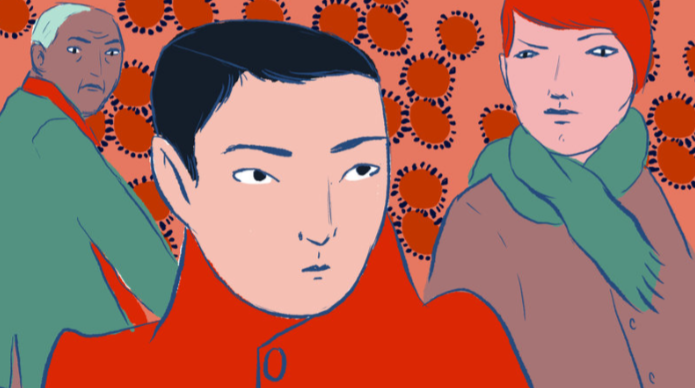Asian Students in Salt Lake City Campus Fear Hate Crimes due to COVID-19 Spread
Asian and Asian-American students at the U of U’s Salt Lake City campus fear that they will be subject to hate crimes that have become widespread throughout the United States. The FBI estimates that a rise in hate crimes directed at Asian individuals will most likely increase. Photo by NPR.
March 30, 2020
Asian students at the University of Utah’s Salt Lake City campus are worried for their safety, after an FBI report obtained by ABC news claimed on Friday, March 27 that hate crimes against people of Asian descent are likely to increase across the U.S. due to the nationwide spread of COVID-19.
“The FBI makes this assessment based on the assumption that a portion of the U.S. public will associate COVID-19 with China and Asian-American populations” the report stated (ABC). While no such cases of hate crimes have emerged from the University of Utah or the greater Salt Lake City area, Asian-American and Asian students are nonetheless concerned.
Eleanor Lee, a Chinese-American student at the U, explained that while racism against people of Asian descent in America has always existed, the spread of the novel coronavirus has escalated the sentiment to drastic new heights – including several cases of physical violence across the nation.
Eleanor expressed her concern over potentially becoming a victim of such hate crimes when she leaves her home. She claims that she is worried not only for her own safety, but also for those of her friends and family of Asian descent in the area. “My whole family lives here… my grandparents… my parents. I am worried about my family and friends when they go outside,” she stated.
Another anonymous, half Japanese-American student at the Salt Lake City campus stated that her primary concern lies in the way in which government officials and the media have handled the hateful responses against Asians during this time.
“The President called it the ‘Chinese virus’” the student explained, alluding to a series of tweets sent out by U.S. President Donald Trump on March 17, in which he unofficially labeled COVID- 19 the “Chinese Virus” (Euronews). “With that kind of label, people are jumping to conclusions that the virus is caused by Chinese people, instead of the fact that it just originated in China.”
She further explained that the global media seems to be perpetuating these perceptions surrounding the novel coronavirus, leading to the continuation of a “cycle of ignorance.” She claims that certain anti-Asian sentiments can even be found in Utah as well, as some individuals have begun avoiding Chinese restaurants, or refusing to buy products made in China.
COVID-19 was first detected in the United States on January 19, in Snohomish County, Washington, carried through a 35-year-old man who had recent travel history to China (NEJM). By March 2, 104 cases were detected in America across 15 states. In less than one month by March 30, 141,995 patients were discovered in every single state, 2,486 of whom have died from the virus (NYT).
According to the Utah Department of Health, the state has performed 13,993 tests, confirmed 719 cases, and reported 2 deaths from COVID-19 in their latest update on Sunday, March 29. Utah remains one of the states least-affected by the novel coronavirus in the nation, and has even declined in the number of new cases found as early as March 25 (Livescience).
The state has reported one case of hate crime against Asian individuals so far. The incident occurred in Cache County, wherein an Asian-American was “subjected to hateful chants and was struck by an object thrown from a moving vehicle.” Salt Lake City’s FBI office made a statement, claiming that “the FBI remains committed to ensuring national security and pursuing violations of federal law” (UPR).

